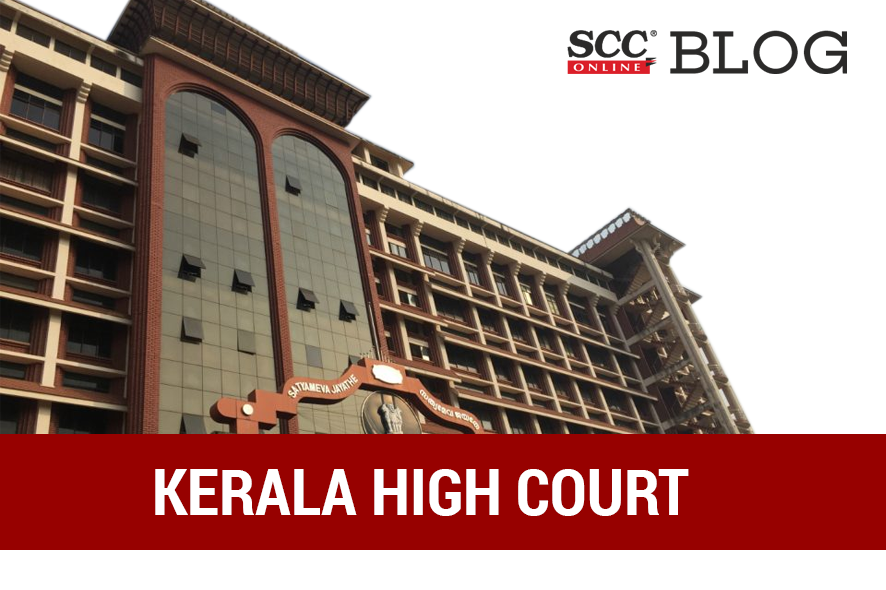Kerala High Court: In an Election Petition challenging the election of A. Raja in Kerala Legislative Assembly 2021, being in violation of Section 5 of Representation of Peoples Act, 1951, P. Somarajan, J. declared his election void since the said seat is reserved for Scheduled Caste in Kerala and the evidence reflects him professing Christianity during and long before his nomination was submitted for those elections.
The present petition challenges the election of returned candidate A. Raja in 2021 Legislative elections in Idukki District, reserved for Scheduled Castes, while A. Raja is not a member of ‘Hindu Parayan’ or a person who belongs to scheduled castes among Hindus in Kerala. The instant petition contends that A. Raja is a Christian and his election is in violation of Section 5 of Representation of Peoples Act, 1951.
The petition reflects that the objection raised before the Returning Officer against acceptance of A. Raja’s nomination was rejected without assigning any valid reason. Getting into the family tree of A. Raja, it is disclosed that his paternal grandparents were residents of Tamil Nadu who migrated to Kerala in 1951. A. Raja is the son of Christian parents baptised by the CSI Church in 1992. He married in accordance with Christian religious rights and his wife is also a Christian. It is alleged that caste certificate filed with the nomination depicting Hindu Parayan is incorrect. It is contended that A. Raja cannot claim to be a member of Hindu Parayan, a scheduled caste in Tamil Nadu in Part XVI of Schedule to the Constitution, Part VIII of Order, 1950. The Petitioner claims that his election is liable to be declared void under Section 100 (1)(a) and 100 (1)(d)(i) of Representation of Peoples Act, 1951.
The preliminary issues of whether the election petition is liable to be dismissed at the threshold under Order VII Rule 11 C.P.C. due to want of cause of action or being barred by limitation were rejected earlier by the Court.
The Court said that the impact of ‘The Constitution (Scheduled Caste) Order, 1950′ in Kerala and Tamil Nadu needs to be considered. While scrutinizing Section 5 of Representation of Peoples Act, the Court observed that “a State-wise recognition was given so as to ascertain the competency and qualification based on the caste or tribe in relation to a seat reserved for Scheduled Caste (‘SC’) or Scheduled Tribe (‘ST’) in any State”. The Court recognized A. Raja to be an elector in Kerala.
After analyzing the scheme of Articles 341 and 342 of the Constitution, the Court noted that an SC or ST notified in a particular State may not apply to another and such benefits can be availed by people recognized and notified with respect to that State. On the aspect of migration from State of origin, the Court relied on Marri Chandra Shekhar Rao v. Seth G.S. Medical College, (1990) 3 SCC 130 wherein, the benefit of SC/ST in a State other than the State of origin was negated, as reiterated in Action Committee on Issue of Caste Certificate to SCs/STs v. Union of India, (1994) 5 SCC 244 and Subhash Chandra v. Delhi Subordinate Services Selection Board, (2009) 15 SCC 458.
The Government order G.O.(Ms)No. 10/86/SCST DD dated 12-2-1986 on clarification for issuance of SC/ST certificate to migrants from another State falls within the mischief of lack of competency, hence invalid and has no legal effect or binding force as per the Court. The settled principle reiterated by the Court lays that “when a person claims any benefit on a specific fact or a contention, the initial burden would always lie on the person who claims the benefit under any statutory provision or otherwise and cannot be shifted to the other party who challenges the benefit and entitlement thereof.” The Court also noted the conspicuous records of the Family Register pointing out the fabrication of evidence.
The Court observed that A. Raja and his predecessors were not Hindu Parayan within Kerala on the date of promulgation of 1950 Order, hence, they can claim the benefit in their State of origin and not in Kerala. The Court held that A. Raja is not a member of Hindu Parayan within Kerala and not qualified for election in the Kerala Legislative Assembly as reserved for SC and thus, his election to the 088 Legislative Constituency is liable to be declared void.
The Court through various evidence observed that A. Raja was professing Christianity when nomination was submitted and had converted to Christianity long before that. Thus, the Court held that A. Raja is not a member of Hindu Parayan and the Returning Officer ought to have rejected his nomination due to lack of qualification to fill a seat in the Kerala Legislative Assembly.
The Court allowed the present petition and declared void the election of returned candidate, A. Raja to the Kerala Legislative Assembly from 088 Devikulam Assembly Constituency in 2021.
[D. Kumar v. A. Raja, 2023 SCC OnLine Ker 1643, judgment dated 20-3-2023]
*Judgment by: Justice P. Somarajan
Advocates who appeared in this case :
For Petitioner: Advocate Narendra Kumar, Advocate M.J. Sajitha;
For Respondent: Senior Advocate T. Krishnanunni, Advocate Raghuraj, Advocate Deepu Lal Mohan, Advocate K.S. Bharathan.






